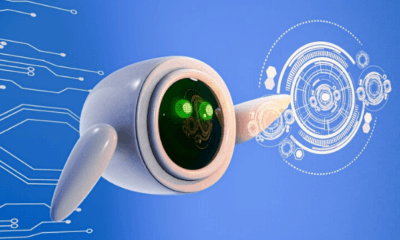AI
Why Should AI Be Banned? Exploring the Arguments
Businessreign.com – Artificial intelligence (AI) has revolutionized various aspects of our lives, from healthcare and transportation to education and entertainment. However, alongside its remarkable advancements, concerns have arisen regarding the potential risks posed by AI, prompting debates about its ethical implications and the possibility of banning it altogether.
Arguments in Favor of Banning AI
Proponents of banning AI raise several compelling arguments to support their stance. One primary concern is the potential for job displacement as AI-powered systems automate tasks currently performed by humans. This could lead to widespread unemployment and social unrest, particularly in industries heavily reliant on manual labor.
Furthermore, the autonomous decision-making capabilities of AI raise concerns about accountability and control. If AI systems make decisions that result in harm or injustice, determining who is responsible becomes a complex issue. This lack of clear accountability could lead to power imbalances and the potential for misuse of AI technology.
Another significant concern is the weaponization of AI. The development of autonomous weapons systems powered by AI could lead to an arms race and increase the risk of unintended consequences, such as civilian casualties and potential escalation of conflicts.
Additionally, the ethical implications of AI are a subject of ongoing debate. AI algorithms can perpetuate biases and discrimination if trained on biased data. This could lead to unfair treatment and reinforce existing social inequalities.
Counterarguments and Considerations
While the arguments against AI are valid, it’s important to consider counterarguments and potential solutions. Advocates for AI development emphasize its potential benefits, such as increased productivity, improved healthcare, and enhanced scientific research. They argue that AI can augment human capabilities rather than replace them, leading to a more efficient and productive society.
Regarding accountability, proponents of AI suggest developing robust ethical guidelines and regulatory frameworks to ensure the responsible use of AI technology. This could involve establishing clear standards for AI development, deployment, and oversight.
To address the weaponization of AI, international cooperation and agreements are crucial. Establishing global norms and regulations prohibiting the development and use of autonomous weapons could help prevent an AI arms race and mitigate the potential for harm.
Addressing AI bias requires careful data curation and algorithm design. By ensuring that AI systems are trained on diverse and unbiased datasets, the potential for perpetuating discrimination can be minimized.
Conclusion: A Balanced Approach
The debate surrounding AI is complex and multifaceted. While concerns about the potential risks of AI are legitimate, it’s essential to consider the potential benefits and explore ways to mitigate the risks through responsible development and implementation. Instead of an outright ban, a more nuanced approach that promotes responsible AI development, coupled with robust safeguards and ethical guidelines, is likely to yield a more beneficial and sustainable future for both AI and humanity.
About The Author
AI
Artificial Intelligence Debate: Exploring the Pros and Cons for Society

Businessreign.com – Artificial intelligence (AI) has revolutionized various aspects of our lives, from the smartphones we carry to the cars we drive. While AI has undoubtedly brought about significant advancements, it has also sparked a heated debate about its overall impact on humanity.
The Benefits of Artificial Intelligence
Proponents of AI highlight numerous advantages that this technology offers to society. These include:
- Enhanced Efficiency and Productivity: AI automates repetitive tasks, freeing up human workers to focus on more complex and creative endeavors. This automation streamlines processes, increases output, and reduces costs across various sectors.
- Improved Decision-Making: AI algorithms can analyze vast amounts of data to identify patterns, trends, and anomalies that humans might miss. This capability enables better-informed decisions in areas such as healthcare, finance, and risk assessment.
- Personalized Experiences: AI tailors products, services, and content to individual preferences and needs. This personalization enhances user experiences, improves customer satisfaction, and drives engagement.
- Advanced Scientific Research: AI accelerates scientific breakthroughs by analyzing complex data, generating hypotheses, and conducting simulations. This contribution drives progress in fields like medicine, materials science, and environmental research.
The Concerns Surrounding Artificial Intelligence
Despite its undeniable benefits, AI raises concerns that have fueled a debate about its overall impact on society. These concerns include:
- Job Displacement: AI automation raises fears of widespread job losses, particularly in industries reliant on repetitive tasks. This displacement could lead to economic hardship and social unrest.
- Algorithmic Bias: AI algorithms can perpetuate existing biases in the data they are trained on. This bias can lead to discriminatory outcomes in areas like hiring, loan applications, and criminal justice.
- Privacy and Security Risks: AI systems collect and analyze vast amounts of personal data, raising concerns about privacy breaches and misuse of information. This data can be exploited for surveillance, manipulation, and identity theft.
- Loss of Control and Ethical Dilemmas: The increasing sophistication of AI raises concerns about human control over these systems. Ethical dilemmas arise when AI makes decisions that have significant consequences for individuals and society.
Navigating the Future of AI
As AI continues to evolve, it is crucial to address both its potential benefits and its associated risks. Governments, businesses, and individuals must collaborate to ensure that AI is developed and used responsibly, ethically, and for the betterment of society.
Conclusion
AI is a powerful tool that has the potential to transform our world for the better. However, it is essential to approach AI with caution and foresight, ensuring that its development and application align with human values and societal well-being. By carefully navigating the pros and cons of AI, we can harness its power to create a future that benefits all of humanity
About The Author
AI
The Double-Edged Sword: Exploring the Pros and Cons of Artificial Intelligence

Businessreign.com – Artificial intelligence (AI) has permeated nearly every aspect of our lives, from the smartphones we carry to the cars we drive. While AI has undoubtedly brought about significant advancements, it has also sparked a heated debate about its overall impact on humanity.
The Benefits of Artificial Intelligence
Proponents of AI highlight numerous advantages that this technology offers to society. These include:
- Enhanced Efficiency and Productivity: AI automates repetitive tasks, freeing up human workers to focus on more complex and creative endeavors. This automation streamlines processes, increases output, and reduces costs across various sectors.
- Improved Decision-Making: AI algorithms can analyze vast amounts of data to identify patterns, trends, and anomalies that humans might miss. This capability enables better-informed decisions in areas such as healthcare, finance, and risk assessment.
- Personalized Experiences: AI tailors products, services, and content to individual preferences and needs. This personalization enhances user experiences, improves customer satisfaction, and drives engagement.
- Advanced Scientific Research: AI accelerates scientific breakthroughs by analyzing complex data, generating hypotheses, and conducting simulations. This contribution drives progress in fields like medicine, materials science, and environmental research.
The Concerns Surrounding Artificial Intelligence
Despite its undeniable benefits, AI raises concerns that have fueled a debate about its overall impact on society. These concerns include:
- Job Displacement: AI automation raises fears of widespread job losses, particularly in industries reliant on repetitive tasks. This displacement could lead to economic hardship and social unrest.
- Algorithmic Bias: AI algorithms can perpetuate existing biases in the data they are trained on. This bias can lead to discriminatory outcomes in areas like hiring, loan applications, and criminal justice.
- Privacy and Security Risks: AI systems collect and analyze vast amounts of personal data, raising concerns about privacy breaches and misuse of information. This data can be exploited for surveillance, manipulation, and identity theft.
- Loss of Control and Ethical Dilemmas: The increasing sophistication of AI raises concerns about human control over these systems. Ethical dilemmas arise when AI makes decisions that have significant consequences for individuals and society.
Navigating the Future of AI
As AI continues to evolve, it is crucial to address both its potential benefits and its associated risks. Governments, businesses, and individuals must collaborate to ensure that AI is developed and used responsibly, ethically, and for the betterment of society.
Conclusion
AI is a powerful tool that has the potential to transform our world for the better. However, it is essential to approach AI with caution and foresight, ensuring that its development and application align with human values and societal well-being. By carefully navigating the pros and cons of AI, we can harness its power to create a future that benefits all of humanity.
About The Author
AI
Artificial Intelligence Debate: Exploring the Pros and Cons for Society

Businessreign.com – Artificial intelligence (AI) has permeated nearly every aspect of our lives, from the smartphones we carry to the cars we drive. While AI has undoubtedly brought about significant advancements, it has also sparked a heated debate about its overall impact on humanity.
The Benefits of Artificial Intelligence
Proponents of AI highlight numerous advantages that this technology offers to society. These include:
- Enhanced Efficiency and Productivity: AI automates repetitive tasks, freeing up human workers to focus on more complex and creative endeavors. This automation streamlines processes, increases output, and reduces costs across various sectors.
- Improved Decision-Making: AI algorithms can analyze vast amounts of data to identify patterns, trends, and anomalies that humans might miss. This capability enables better-informed decisions in areas such as healthcare, finance, and risk assessment.
- Personalized Experiences: AI tailors products, services, and content to individual preferences and needs. This personalization enhances user experiences, improves customer satisfaction, and drives engagement.
- Advanced Scientific Research: AI accelerates scientific breakthroughs by analyzing complex data, generating hypotheses, and conducting simulations. This contribution drives progress in fields like medicine, materials science, and environmental research.
The Concerns Surrounding Artificial Intelligence
Despite its undeniable benefits, AI raises concerns that have fueled a debate about its overall impact on society. These concerns include:
- Job Displacement: AI automation raises fears of widespread job losses, particularly in industries reliant on repetitive tasks. This displacement could lead to economic hardship and social unrest.
- Algorithmic Bias: AI algorithms can perpetuate existing biases in the data they are trained on. This bias can lead to discriminatory outcomes in areas like hiring, loan applications, and criminal justice.
- Privacy and Security Risks: AI systems collect and analyze vast amounts of personal data, raising concerns about privacy breaches and misuse of information. This data can be exploited for surveillance, manipulation, and identity theft.
- Loss of Control and Ethical Dilemmas: The increasing sophistication of AI raises concerns about human control over these systems. Ethical dilemmas arise when AI makes decisions that have significant consequences for individuals and society.
Navigating the Future of AI
As AI continues to evolve, it is crucial to address both its potential benefits and its associated risks. Governments, businesses, and individuals must collaborate to ensure that AI is developed and used responsibly, ethically, and for the betterment of society.
Conclusion
AI is a powerful tool that has the potential to transform our world for the better. However, it is essential to approach AI with caution and foresight, ensuring that its development and application align with human values and societal well-being. By carefully navigating the pros and cons of AI, we can harness its power to create a future that benefits all of humanity.
About The Author

 Business9 months ago
Business9 months agoMaster Business Planning: Essential Guide for Aspiring Entrepreneurs

 Business9 months ago
Business9 months agoBusiness Innovation: Top Idea Generation Techniques for Entrepreneurs
- AI9 months ago
Should AI Be Banned: Pros, Cons, and the Future of Education

 Business9 months ago
Business9 months agoOldest private members’ clubs London: Historical Gems

 Business9 months ago
Business9 months agoFamous private clubs in London: Renowned Establishments

 Artificial Intelligence9 months ago
Artificial Intelligence9 months agoArtificial Intelligence Is a Threat to Humanity: Debate Points

 Artificial Intelligence9 months ago
Artificial Intelligence9 months agoIs Artificial Intelligence Good for Society? A Balanced Debate Essay

 Entrepreneur9 months ago
Entrepreneur9 months agoUnlock the Secrets to Business Success: Essential Entrepreneurship Skills You Need to Know

